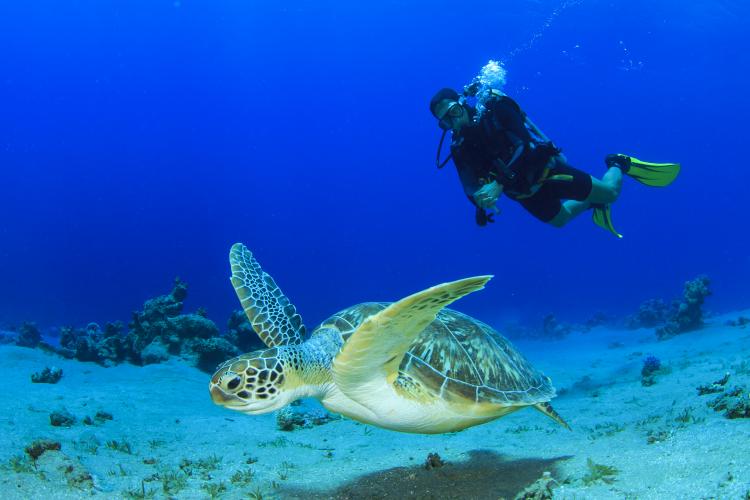Tourism Resilience Partnership
SOUTH PACIFIC TOURISM ORGANISATION (SPTO)
#SDGAction39994
Description
Capacity building and knowledge/technology transfer will happen at multiple levels. Most directly, and within the South Pacific, capacity building initiatives will be led by SPTO through regional forums and selected country workshops. The other partnership organisations will support SPTO in these initiatives and provide input and expertise. In addition, UNWTO will build capacity within the South Pacific by providing knowledge gained from other country projects, e.g. in the Caribbean, Indian Ocean or other comparable destinations. In turn, UNWTO will also take insights gained from activities within the South Pacific to share with other international destinations as case studies and/or lessons learnt.UNISDR maintains extensive networks of organisations and experts in disaster management and risk reduction with strong advocacy skills to work with Governments to influence policy.
The partnership will be governed through (i) Steering Group and (ii) Coordinating Secretariat.(i) Steering Group: This Group will be the peak decision making group for the partnership, and consist of representatives from each collaborating organization. It will consider key policy directions for the initiative and would meet once a year face-to-face and at other times via electronic means as deemed necessary.(ii) Coordinating Secretariat: Will consist of representatives from SPTO and GIFT. It will provide the regular operational and financial management of the initiative.
2. South Pacific Tourism Organisation (SPTO)
3. Secretariat of the Pacific Regional Environment Programme (SPREP)
4. Griffith University (Griffith Institute for Tourism and Climate Change Response Programme), Australia
5. Lincoln University, New Zealand
The United Nations World Tourism Organisation (UNWTO) is a potential partner with whom discussions are at an advanced stage. UNWTO is expected to join this Tourism Resilience Partnership by September.
SDGS & Targets
Goal 8
Promote sustained, inclusive and sustainable economic growth, full and productive employment and decent work for all
8.1
8.1.1
Annual growth rate of real GDP per capita
8.2
Achieve higher levels of economic productivity through diversification, technological upgrading and innovation, including through a focus on high-value added and labour-intensive sectors
8.2.1
Annual growth rate of real GDP per employed person
8.3
Promote development-oriented policies that support productive activities, decent job creation, entrepreneurship, creativity and innovation, and encourage the formalization and growth of micro-, small- and medium-sized enterprises, including through access to financial services
8.3.1
Proportion of informal employment in total employment, by sector and sex
8.4
Improve progressively, through 2030, global resource efficiency in consumption and production and endeavour to decouple economic growth from environmental degradation, in accordance with the 10-Year Framework of Programmes on Sustainable Consumption and Production, with developed countries taking the lead
8.4.1
Material footprint, material footprint per capita, and material footprint per GDP
8.4.2
Domestic material consumption, domestic material consumption per capita, and domestic material consumption per GDP
8.5
8.5.1
Average hourly earnings of female and male employees, by occupation, age and persons with disabilities
8.5.2
Unemployment rate, by sex, age and persons with disabilities
8.6
8.6.1
Proportion of youth (aged 15-24 years) not in education, employment or training
8.7
Take immediate and effective measures to eradicate forced labour, end modern slavery and human trafficking and secure the prohibition and elimination of the worst forms of child labour, including recruitment and use of child soldiers, and by 2025 end child labour in all its forms
8.7.1
Proportion and number of children aged 5‑17 years engaged in child labour, by sex and age
8.8
Protect labour rights and promote safe and secure working environments for all workers, including migrant workers, in particular women migrants, and those in precarious employment
8.8.1
Fatal and non-fatal occupational injuries per 100,000 workers, by sex and migrant status
8.8.2
Level of national compliance with labour rights (freedom of association and collective bargaining) based on International Labour Organization (ILO) textual sources and national legislation, by sex and migrant status
8.9
By 2030, devise and implement policies to promote sustainable tourism that creates jobs and promotes local culture and products
8.9.1
Tourism direct GDP as a proportion of total GDP and in growth rate
8.10
Strengthen the capacity of domestic financial institutions to encourage and expand access to banking, insurance and financial services for all
8.10.1
(a) Number of commercial bank branches per 100,000 adults and (b) number of automated teller machines (ATMs) per 100,000 adults
8.10.2
Proportion of adults (15 years and older) with an account at a bank or other financial institution or with a mobile-money-service provider
8.a
8.a.1
Aid for Trade commitments and disbursements
8.b
By 2020, develop and operationalize a global strategy for youth employment and implement the Global Jobs Pact of the International Labour Organization
8.b.1
Existence of a developed and operationalized national strategy for youth employment, as a distinct strategy or as part of a national employment strategy
SDG 14 targets covered
Deliverables & Timeline
Resources mobilized
Partnership Progress

Feedback
Action Network

Timeline
Entity
SDGs
Region
- Asia and Pacific
More information
Countries
Contact Information
Mr. Ilisoni Vuidreketi, Chief Executive Officer, South Pacific Tourism Organisation

